|
Gathering Around the Word
Choir Pianist: Carol Smith Announcements: CALL TO WORSHIP: The word of life has come to us. He who was with the Father before all time has come to us. Praise God for the fellowship we have as His church. Praise God for the fellowship we now can have with Him. Let us testify to the truth that we have seen and know. Draw your highest sense of joy from knowing the Lord. For what God has done, for what He is doing in us and in our world, let us worship God together. INVOCATION
*HYMN: “It Came Upon the Midnight Clear” # 123
*PRAYER OF CONFESSION: Father, the world’s priorities are all out of whack. It elevates that which is temporary, promotes division, and values those with the most strength. At times we too have bought into that way of thinking. We have allowed insignificant differences to create significant divides, we have spent much of our time trying to obtain more and more of the things that do not last, and we have looked to a false sense of strength when You teach us that true strength comes from humility. Forgive us for the many times when we have forfeited the truth that we know, revealed to us by Your word, for the alternative offered to us by the world. We are sinful but trust that You are merciful. Transform us to be able to find all of our joy in knowing You. Amen Time of silent prayer. Assurance of Pardon Response – Gloria Patri # 581 * Passing of the peace Children’s Chat Prayer of illumination Scripture: Isaiah 2: 1-5 Lois Miller Sermon text: 1 John 1: 1-4 *HYMN “The First Nowell” # 147 *Apostles Creed (next to Prayer List) Presentation of tithes and offering Offertory *Doxology *Prayer of dedication Concerns and Celebrations Prayers of the people The Lord’s Prayer *HYMN ”Go Tell it on the Mountain” # 136 *Benediction *Postlude Safe and Happy New Year!!
0 Comments
Good morning!
We're so glad you're joining us today!
When we meet in person, we share our joys and concerns. Take some time to consider the past week, and any prayer requests you might have. When you are ready, use the prayer below (source) to get started.
Lord, may we be like the Wise Men who were guided to you by a star. Give us wisdom to seek you, light to guide us to you, courage to search until we find you, graciousness to worship you and generosity to lay our gifts before you, who are our King and our God for ever and ever. Amen
Today's lesson is on Matthew 2:1-12.
Our text for study involves a mysterious star. This invites a consideration of the distinctions between astronomy and astrology. In modern times, we make a clear-cut distinction between two. But the two were blended together in the ancient world. Astronomy is the scientific study of the sun, moon, stars, planets, etc.; Astrology combines that study with the belief that the so-called gods orchestrate the appearances, positions and movements, therefore reveal information about divine plans for the future. Astrology is practiced today in the form of horoscopes associated with the zodiac.
In the Old Testament, astrologers are mentioned most in the book of Daniel. The people of Israel were warned about pagan occult practices; astrology, being a part of it, was one of them. And moving from consulting the stars to worshiping the stars was an all too easy step to take. The ancient Greek translation of the book of Daniel designates such men as magi, from which we derive our modern word magician. But words change meaning over time, and how ancient people viewed magi is not to be equated with the contemporary role of a magician who uses sleight of hand to entertain audiences. Instead, this word describes men of wisdom; we surmise they were astrologers-scholars. Matthew gives fewer details about the actual birth of Jesus than Luke. Instead, Matthew relates the nativity story with simplicity. Jesus was born in Bethlehem. A few details are added, trying to account for the geography and history of Palestine. Bethlehem is a village located a few miles southwest of Jerusalem. It is the birthplace of King David. King Herod the Great, who ruled 37-4 BC as the first Roman puppet-king of Judea. He died shortly after today's events. Herod the Great was not an ethnic Jew but an Idumean (related to modern Arabs) He is designated as “The Great” because of his extensive building projects. The grandest of these was the rebuilding of the temple in Jerusalem, a project he began about 20 BC and that was unfinished at the time of his death. Many legends have arisen in Christian tradition about these Magi. These include speculations regarding their occupations (kings?), their number (three?), their names (Melchior, Casper, and Balthazar?) and their place of origin (Babylon? Persia?) Matthew's account doesn't answer such questions. We should understand from the east as describing their point of origin, not their route. The lands of Babylon and Persia lie 600 miles or more from Jerusalem in a straight line that crosses the Syrian Desert. But it is highly unlikely that the wise men traveled across the intervening desert. Instead they would have come to Jerusalem by following the Euphrates River valley to Syria and then south through Damascus. This was a well traveled trade route through a region called the Fertile Crescent. Such a route would have been a thousand miles. It would take four months to walk this distance. That there are at least two Magi is certain because the term is plural. But beyond that, we don't know how many there were. The tradition that there were three wise men seems based on the fact they offered three gifts to Jesus in Matthew. They likely would have been in a large, well-funded entourage. Verse 7 indicates that the Magi were granted a personal audience with Herod at some point. They either had diplomatic letters of introduction, could offer generous bribes or presented such a regal appearance that Herod agreed to see them. That is why some speculated the visitors were “kings.” "Where is the one who has been born king of the Jews? We saw his star when it rose and came to worship him." The wise men interpret the new star as a sign that the newly arrived King of the Jews was important enough to be worthy of their worship. Although not specified in Matthew, this is often seen as a fulfillment of the “star out of Jacob” prophecy of Numbers 24:17. The wise man's inquiry did not sit well with the paranoid King Herod. He was an old man who had sons and wives put to death when seen as threats to his throne. In Jerusalem they knew what the King was capable of when he was disturbed. The people of the city would be willing to do anything to placate the king. The chief priest ruled Jerusalem's temple. They had an uneasy alliance with Herod that had enriched them greatly as the party of the Sadducee. The teachers of the law were the experts in the Jewish Scriptures, often called upon to interpret fine points of the Law of Moses. Herod was no expert on things such as prophecies concerning coming kings. Even so, he was apparently aware that the Jews believed a Christ was coming, the chosen Messiah of the Lord. Herod connects these prophecies with the inquiry of the wise men. Therefore, he asked the religious leader to reveal the birthplace of the Messiah, believing that it must have been specified in the writing of the prophets. While this would give an answer to the wise men, Herod had a more devious motive in learning the location. The religious leaders quoted Micah 5:2. On the precise designation Bethlehem in Judea. This prophecy was already 700 years old at the time of Herod. It recognizes the insignificance of Bethlehem. It foretells the raising up of a new ruler from this city. And it indicates this person would not be a mere city ruler or district supervisor. Instead, the prophesied Messiah would shepherd my people Israel. He lied to the wise men and said he desired to worship him also. They were to return to him and give the direct location of him. When they left the star appeared again. They were overjoyed because they could travel at night. The location of the child with his mother Mary was no longer the manger but a house. The Magi were not empty-handed in their worship of Jesus. They present him with costly gifts for a king. They gave him the gift of gold, likely coins that would help the family's subsequent flight to Egypt and return to Nazareth. They gave him Frankincense which was the finest incense in the ancient world. It was imported from southern Arabia and Africa. It was prized for its use in religious ceremonies and as a costly sacrificial offering. The third gift was of Myrrh. It was valued as an ingredient in perfume; it was used for anointing and in preparing a body for burial. The wise men were warned in a dream not to report back to King Herod. This warning served to protect not only the child Jesus but also Mary, Joseph and the Magi. Herod's intent was to have this potential king killed and the others could have felt his wrath as well.
Conclusion
A favorite Christmas carol of mine about the wise men is the nineteenth-composition “The Three Kings” by Peter Cornelius. True, it has many of the legendary aspects of their story in presuming that they were kings, that they came from Persia, etc. The lesson of the carol is still powerful, though, and speaks to us today as one stanza implores their audience to travel with the kings to Bethlehem, and offers hearts to the infant King of Kings. Most of us don't have much gold to offer Jesus. And if we even had any frankincense or myrrh, how would we offer those? But we can offer him sincere hearts in worship. He is the Son of God, the true Messiah. At this time of year when we remember and celebrate the birth of our Lord in Bethlehem may we offer our most precious gift: our hearts. Prayer Father, help us to emulate the faith of the wise men? As they let nothing stop them fro reach Jesus, may we do so as well. May the faith that allowed them to thwart the plans of a powerful opponent be ours as well. May we offer your Son, Jesus, no empty-handed worship. We pray this in Jesus' name. Amen. Last year Lisa Hamilton gave us a book called “The Fourth Wise Man”. It is also a 1985 movie starring Martin Sheen and Alan Arkin. I streamed it for free on my phone. It had a good moral to it. It is about a Magi who wanted to follow the star so he could worship the King of the Jews. He has three jewels he wants to give to the Messiah. He misses the caravan and is always one step away from seeing Jesus. He spends much of his remaining wealth and all of his energy helping the poor and the unfortunate people he meets, until at the end of his life he finally finds Jesus at his trial. He wants to pay Jesus ransom with his last jewel he had saved a young girl who was being sold for her father's debt. When he was dying he saw the Risen Christ and he apologizes for never giving him his gift. Jesus said “ but you did For when I was hungry and you gave me something to eat. I was thirsty and you gave me something to drink. I was a stranger and you invited me in. I needed clothes and you clothed me.” The Magi said “Lord I never saw you till today” Jesus said.”I tell you whatever you did for one the least of these brothers, you did for me.”
Questions
Benediction
This week's benediction is from the New Living Translation.
Next week will be the first Sunday of the new year! The lesson will be on Hebrews 11:1-4, 7, 8, 17-18, 20-23, 32, 39-40.
Christmas Eve Service Choir “O Holy Night” Announcements: ADVENT: The Bell Family CALL TO WORSHIP: O what a great darkness that sin had left us in O how we longed to once again know the light Then in an instant everything changed. On that night, lying in a manger was the brightest light that ever shone. Wrapped in swaddling clothes laid all of our hope and joy. Praise be to God that when we think of that baby in Bethlehem thousands of years ago, we see the hope of all God’s people made complete and all of God’s promises fulfilled. Let us worship our God who is worthy of every praise from generation to generation. INVOCATION *HYMN: “O Come, All Ye Faithful” # 133
*PRAYER OF CONFESSION: Lord Jesus Christ, at Your birth the angels gave glory to God in the highest heaven and offered peace on earth to all humankind. We struggle to follow the heavenly host. All too often we focus on giving glory to ourselves, trying to impress our friends, coworkers, and family. We make no move to further peace in our polarized world; we forget that You have called us to be ambassadors of reconciliation. Forgive us for these and all our sins, and strengthen us to join the angels in singing “glory be to our God forever.” Time of silent prayer. Assurance of Pardon Response – Gloria Patri # 581 * Passing of the peace Scripture: Psalm 96 Diana Donaldson Sermon text: Luke 2: 1-20 *HYMN “Angels We Have Heard on High” # 113 *Apostles Creed (next to Prayer List) Presentation of tithes and offering Offertory *Doxology *Prayer of dedication The Lord’s Prayer *HYMN ”Silent Night, Holy Night” # 119 *Benediction *Postlude Blessed Christmas Eve
Gathering Around the Word
Choir Announcements: ADVENT: The Fisher Family CALL TO WORSHIP: Praise be to the one who has built us up in the good news, Praise be to God for the message of Jesus the Christ The mystery of salvation is found in Him Thanks be to God for what is ours through faith Let us worship the only wise God who is glorified forever through Jesus Christ INVOCATION
*HYMN: “O Little Town of Bethlehem” # 121
*PRAYER OF CONFESSION: O eternal and gracious God, all year long we pursue power, money, and influence. Yet You come to us in the weakness of the manger. All season long we covet material gifts. Yet You alone offer us the only everlasting Son, Jesus Christ, God with us. We confess to You our pride, our faithlessness, and our reluctance to accept Your grace. Through the work of the Lord Jesus and the power of the Holy Spirit, forgive us, heal us, correct us, and transform us. Then enable us to be still, to know Your presence, and to praise You. We pray through Jesus Christ our Lord. Amen Time of silent prayer. Assurance of Pardon Response – Gloria Patri # 581 * Passing of the peace Children’s Chat Prayer of illumination Scripture: Luke 1: 67-79 Diana Donaldson Sermon text: Malachi 4 *HYMN “While We are Waiting, Come” # 92 *Apostles Creed (next to Prayer List) Presentation of tithes and offering Offertory *Doxology *Prayer of dedication Concerns and Celebrations Prayers of the people The Lord’s Prayer *HYMN ”Hark! The Herald Angels Sing” # 119 *Benediction *Postlude Blessed Christmas Eve Morning
Christmas Eve Services
5 pm at Taylorstown 7 pm at North Buffalo
Good morning!
We're so glad you decided to join us on Christmas Eve!
Today is the fourth Sunday of Advent and Christmas Eve.
When we meet in person, we share our joys and concerns with each other. If you have prayer requests to share, you can add them to the comments on this post. When you are ready, use the prayer below to get started. It was written by Ben Luker, an apprentice at the Calvin Institute for Christian Worship.
Almighty God, giver of strength, we know that you have made a way for those who believe. We remember your faithfulness. We rejoice in your presence as we seek wisdom in the many decisions we have to make. Give us thankful hearts in troubled times, hearts sustained by your Holy Spirit.
Open our eyes to the wonders of your love in Jesus Christ and turn us from that which distracts us from the good. In your One and Only Son we pray, Amen.
Today's lesson is on Luke 1:36-45, 56.
Lesson context
Church history and the great majority of scholars attribute the books of Luke and Acts to Luke, the apostle Paul’s traveling companion in the book of Acts. While on those missionary journeys, Luke — who is believed to have been the beloved physician referred to in Colossians 4 — may have interviewed people who knew Jesus personally. Among those people may have been Mary, the mother of Jesus, which could be how he could offer such detail about many encounters, even when only two people were involved. Such an encounter is recorded in our lesson for today. It is a meeting between Mary and her relative Elizabeth when each was miraculously pregnant. Elizabeth was a married woman beyond the age of childbirth, and Mary was an unmarried virgin. As the text opens, the birth of Elizabeth’s baby — the person who came to be known as John the Baptist — has been foretold (Luke 1:5-25) and the birth of Jesus to Mary has also been foretold (Luke 1:26-35). Both births were proclaimed through angelic visitations.
Acceptance of the message (verses 36-38)
Our lesson begins with the last part of a statement that the angel Gabriel makes to Mary. The angel is responding to Mary’s question about she will be a mother when she is a virgin. He replies that hers is not the only miraculous pregnancy but that her relative Elizabeth is also about to give birth. It is not certain exactly how Mary and Elizabeth are related, although most scholars believe they are probably cousins. However, the news about Elizabeth’s pregnancy would have strengthened Mary’s faith and confirmed the angel’s words about Mary’s pregnancy. The angel concludes with words that echo those of a divine visitor who spoke to Abraham about his own struggle with infertility and God’s miraculous intervention in Genesis 18: “Is anything too hard for the Lord?” In Mary’s case, the angel says, “For no word from God will ever fail.” Both Mary and Elizabeth’s husband Zechariah had asked the angel how this would occur. Their questions differ, however, in that Zechariah was skeptical and wanted a sign, but Mary was simply curious. Ironically, Zechariah does receive a sign, although probably not one he had wanted. He is unable to speak until the his son is born. Following Gabriel’s response, Mary simply agrees and submits. Although it may not have been necessary for the plan to unfold, it shows that despite the peril, Mary was a willing and humble participant in what was about to happen.
Joyous meeting (verses 39-45 and 56)
Very soon after the angel’s visit, Mary leaves to visit Elizabeth. If Zechariah served as priest in the city of Hebron, Mary and Elizabeth live about 100 miles apart, which explains why Mary had not heard about Elizabeth’s pregnancy. Even if he served in another city, the two women lived at least 35 miles apart. Either way, this was no easy journey for Mary, but she probably needed first-hand confirmation of the angel’s message as well as fellowship with the only other person who could possibly understand what she was going through. She also leaves fairly quickly because it would be easier to travel during the early stages of her pregnancy. Elizabeth is probably about six months along in her pregnancy. As Mary arrives, she enters the home and greets Elizabeth. At that moment, Elizabeth’s baby not only moves but “leaped for joy,” according to Elizabeth. This foreshadows the role that John the Baptist will play later in life in pointing people to Jesus. At that moment, Elizabeth is filled with the Holy Spirit and begins to speak. The Holy Spirit plays a key role in Luke’s gospel and in the book of Acts. Inspired by the Holy Spirit and without even hearing that Mary is pregnant at this point, Elizabeth cries out that Mary is blessed among women and that Mary’s child is blessed as well. Even though Jesus has not yet been born and has hardly begun to form in Mary’s womb, Elizabeth calls him her Lord. According to the lesson, for Elizabeth to say that shows her great faith that God is intervening in history through this child. It is also a divinely inspired statement of humility. Elizabeth’s statement of joy and affirmation runs from verse 42 to 45. She uses the term “blessed” three times — twice in verse 42 and once in verse 45. Even though they have been translated as the same word in English, they are actually two different words in Greek. In verse 42, the word is eulogēmenē (eὐλογημένη) and eulogēmenos (εὐλογημένος). It’s the word from which we get our English word for eulogy, which means to speak well of. So the sense in verse 42 is that people will speak well of both Mary and of the child she will bear. It is the same word that the angel Gabriel uses in verse 28 (not in today’s lesson) when he greets Mary and calls her blessed among women. However, in verse 45, the Greek word that we translate as blessed is actually makaria (μακαρία). It is a word that refers to a person who will enjoy “favorable circumstances.” Therefore when Elizabeth calls Mary blessed here, she is not simply stating that others will speak well of her. She is saying that God is using her in a wonderful way that will ultimately lead to her happiness. This is the same word that Jesus uses to refer to people who are blessed in the Beatitudes.
The Greater Blessed
Jackie married her high school sweetheart, received an offer for her dream job, bought her dream house, and became pregnant in the same year. Every conversation she had with her friends resulted in the response: “You are so blessed!” Here sister, Jasmine, did not hear the same pronouncement nearly as often. Jasmine remained single and made less than half as much money as Jackie. But Jasmine was a Christian and a member of a church, while sister Jackie was not. Which of these two women was the greater blessed? The answer to that depends on which lens you use in viewing their situations. Viewed strictly through a worldly leans, Jackie was the great blessed; but viewed through the heavenly lens of eternity, the greater blessed is Jasmine. Which lens do you use to view your own status and situation? Have you forgotten how blessed you are to believe in Christ? It’s easy to do in a world that casts God to the side and enthrones his gifts as gods themselves. But let Elizabeth’s pronouncements of blessing remind you of the true nature of blessedness. Mary stayed with Elizabeth for three months, which means that she left around the time Elizabeth gave birth. (Luke has already told us in 1:26) that Elizabeth was already six months pregnant when the angel visited Mary.) These three months would have undoubtedly been a time of mutual support and joy over what was happening to and through the women.
Conclusion
When it comes to belief and faith, I have often wondered whether I am more in the mold of Zechariah, with his doubts, than I am in the role of Mary, with her faith and acceptance. As I write this, there are multiple degrees in biblical studies hanging on my office wall, and I have 20 years of teaching experience at a Bible college under my belt. As a seasoned priest, Zechariah was similarly well-educated in the things of God. You would expect him to have the greater faith. But the greater faith is found with Mary. Now I genuinely believe my education is a blessing and helps my faith. Yet there are times when I wonder whether my education distracts me from having faith like Mary’s. Perhaps we trust in our learning and understanding to figure things out rather than trusting God, and in so doing violate Proverbs 3:6: “Trust in the Lord with all your heart and lean not on your own understanding; in all your ways submit to him, and he will make your paths straight.” Mary wasn’t as formally educated as the learned priest. Yet her belief was genuine. What Mary was asked to accept was not an easy thing, and God understood this. In encouraging Mary’s faith, the angel pointed her both backward to the story of Abraham and Sarah and forward to what was happening to Elizabeth. God may call you to a role similar to that of the angel as you point another person backward to a champion of faith forward to an example of how God is now working. The joy experienced by John the Baptist and Elizabeth resulted from Mary’s faith, at least in part. The ripple effect of this joy is also seen in passages such as Matthew 2:10 and Luke 2:10, 21-38. That ripple effect reaches us here in the twenty-first century — or at least it should!
Prayer
Lord, thank you for the example of Mary’s trusting belief. Show us how Mary’s example can inform our own faith. Help us move ever more toward belief and faith! Thank you for the encouragement of your faithful people of the past as recorded in your Word. We pray in Jesus’ name. Amen.
Questions for discussion
Benediction
Today's benediction is from the New International Version.
Next week's lesson is on Matthew 2:1-12.
Gathering Around the Word
Prelude: Choir “Great is Thy Faithfulness” Announcements: ADVENT: The Huffman Family CALL TO WORSHIP: Because of the Lord’s great love, we are not consumed. His compassion never fails. They are new every morning! Great is His faithfulness! The Lord is my portion. The Lord is good to those whose hope is in Him. Let us worship our good, faithful, and compassionate God. INVOCATION
*HYMN: “O Come, O Come, Emmanuel” # 88
*PRAYER OF CONFESSION: Father, we never truly understand the depth of our sin. We think our mistakes are momentary slip ups and forget that sin is at the center of who we are. We turn against You all throughout our lives. And yet when things fall apart or we go through the results of Your judgment we often question Your character instead of ours. Forgive us for thinking too lightly of our sin. Forgive us for the ways we turn against You in thought, word, and deed. And teach us to rely on Your love and mercy as the source of our forgiveness. Time of silent prayer. Assurance of Pardon Response – Gloria Patri # 581 * Passing of the peace Children’s Chat Prayer of illumination Scripture: Luke 1: 46-55 Mary Esselstyn Sermon text: Lamentations 3: 1-33 *HYMN “Away in the Manger” # 114 *Apostles Creed (next to Prayer List) Presentation of tithes and offering Offertory *Doxology *Prayer of dedication Concerns and Celebrations Prayers of the people The Lord’s Prayer *HYMN ”Joyful, Joyful, We Adore Thee” # 611 *Benediction *Postlude Go! Have a wonderful Sunday
Good morning!
We're so glad you decided to join us!
Today is the third Sunday of Advent.
When we meet in person, we share our joys and concerns. Take some time to consider the past week, and any prayer requests you might have. When you are ready, use the prayer below (source) to get started.
Lord Jesus,
Master of both the light and the darkness, send your Holy Spirit upon our preparations for Christmas. We who have so much to do and seek quiet spaces to hear your voice each day, We who are anxious over many things look forward to your coming among us. We who are blessed in so many ways long for the complete joy of your kingdom. We whose hearts are heavy seek the joy of your presence. We are your people, walking in darkness, yet seeking the light. To you we say, "Come Lord Jesus!' Amen.
Today's lesson is on Matthew 1:1-17.
Lesson Context
The Gospel of Matthew was written primarily for a Jewish-Christian audience somewhere between about 50 - 100 AD. The author emphasized connections between Jesus' life and Old Testament writings as a way to show that Jesus was the long-awaited Messiah. Our book briefly points out that the genealogy in Matthew and the genealogy given in Luke 3:23-28 do not match up. There are different names, different numbers of generations, different organizational structures and they go back to different people. Each writer had a different purpose in mind for their rendition of Jesus' family history. Matthew's primary purpose in writing his Gospel was to reveal who Jesus the Messiah is and why his life is significant. The Hebrew word for Messiah (which can be translated with the Greek word for Christ) means "anointed one" and referred at various times to both priests and kings. At some point after the fall of David's royal line, it came to refer to the anticipated savior of the Jewish people. Because the audience of this gospel was Jewish, the connection to Abraham and David would have ben important. The audience knew the promises made to both of those men. How Jesus fulfilled these promises would take the rest of the gospel to answer.
From Abraham to David (verses 1-6)
This first chunk of the genealogy covers approximately 1,100 years. Abraham was chosen by God, and was promised that, "all peoples on earth will be blessed through you," (Genesis 12:3). Isaac was the miracle baby, born to Abraham and Sarah in their old age (Genesis 21:1-7). Jacob was Isaac's second son, who stole his brother Esau's birthright (Genesis 27). Later, Jacob was renamed Israel after wrestling with God. (Genesis 32:22-31). Jacob and his wives had twelve sons, who were the ancestors of the twelve tribes of Israel (Genesis 35:22-26). Matthew's genealogy goes through one of the younger brothers, Judah. In a change of pattern, the next generation's mother, Tamar, is also mentioned. It is assumed that Tamar was a Canaanite woman. She was married to one of Judah's sons, but he died before they had any children. At that time, one of her husband's brothers would have married her in order to provide the deceased brother with an heir. This did not happen. Instead, Tamar devised a plan to become pregnant by Judah himself. She gave birth to twin boys, Perez and Zerah. The family then went to Egypt during the famine in Canaan. They stayed there until the exodus. Amminadab and Nahshon are both associated with the 40 year period of wandering in the wilderness. Salmon represents the first generation that was tasked with conquering Canaan in the days of Joshua. We then encounter the next woman within the genealogy, Rahab. Rahab was the Canaanite prostitute who helped the Israelites conquer Jericho (Joshua 6:25). Rahab and Salmon had a son named Boaz. The story of Boaz and Ruth takes up the first four chapters of the book of Ruth. It was also the first lesson of this quarter. Ruth was a Gentile, the third to be named in this passage. The two had a son named Obed. His son was Jesse. Jesse originally offered his older sons as candidates for king. But the Lord chose Jesse's youngest son, David instead (1 Samuel 16:1-13). Matthew calls him King David, emphasizing the promise that David's throne would be established forever.
From David to Exile (verses 6 - 11)
The middle portion of the genealogy covers about 400 years. It starts with King David, and then his son, Solomon. Our book points out that Solomon's mother was referred to as Uriah's wife instead of by her name, Bathsheba. It suggests that this has a couple of purposes. One is to highlight that she was likely a Hittite, as was Uriah. It also emphasizes her first marriage that was destroyed after David called her to his house. Reminding the reader of David's grave sins serves to temper any hero worship that the king's status -- especially having been handpicked by God and received incredible blessings from him -- might otherwise inspire. Solomon was the last king of the united monarchy of Israel, in large part due to his own faithlessness later in his reign (1 Kings 11:9-13). From there, King Rehoboam and his successors of the southern kingdom of Judah in Jerusalem are listed. Some of these kings were righteous, and some were not. There are a few notes on the list of kings. Assyria conquered Israel during the reign of Hezekiah in 722 BC. Judah's survival of that crisis is attributed in part to Hezekiah's continued faithfulness to the Lord (2 Kings 19:14-36). Josiah was credited with reinstituting the worship of the Lord and teaching the book of the law (2 Chronicles 34). At the end of this section, we have wicked King Jeconiah. He and his brothers were exiled in the first wave to captives to Babylon. Jerusalem and the temple were destroyed in the final Babylonian siege in 586 BC (2 Kings 24:18-16). The exile marks the end of this portion of the genealogy.
From Exile to Christ (verses 12 - 17)
The last portion of the genealogy takes a little under 600 years, starting from the low point of the Babylonian exile. The next men, Shealtiel and Zerubbabel, represent the 70 years in captivity. After Babylon was conquered by Cyrus of Persia, the people of Judah were allowed to return to Jerusalem in 538 BC. Zerubbabel was instrumental in rebuilding the temple in Jerusalem. With Zerubbabel, the Old Testament account of the kingly line ends. The last men listed, up until Joseph, come from a source unknown to us. Nothing is known about the lives of the men from the rebuilding of the temple to Jesus' adoptive father, Joseph. As a side note, Joseph's father does not match between this genealogy and that of Luke. The end of the genealogy is carefully worded. Joseph is the husband of Mary, not a biological relative of Jesus. Jesus' belonging in Joseph's family was a matter of choice, like adoption, instead of natural heritage. Mary is the only woman in the genealogy who was not a Gentile. She accepted God's plan for her with faith and humility, demonstrating why he chose her to raise Jesus. Calling Jesus the Messiah bookends the genealogy. Numbering fourteen generations in each section of the genealogy is an organizational tool that emphasizes the roles of Abraham, David and the exile as formative people/events in Israel's history. The summary serves to emphasize the fulfillment of God's promises.
Conclusion
Showing all of the different people, with all of their different backgrounds and problems, shows us something about God. The people listed in Jesus' genealogy were both men and women, Jews and Gentiles, righteous and wicked. All of them were imperfect people. But God used them to accomplish his perfect plans.
Prayer
Lord God, may we be reminded that you use all sorts of people to accomplish your will. May you use us, in spite of our sins and weaknesses. In Jesus' name we pray. Amen.
Questions for Discussion
Benediction
This week's benediction is from the New English Translation.
Next week's lesson will be on Luke 1:36-45, 56.
Gathering Around the Word
Prelude: Choir Standing on the Promises Announcements: ADVENT: The Cipoletti Family CALL TO WORSHIP: The voice of the Lord declares, “Comfort, O comfort my people.” A voice cries out, “Prepare the way of the Lord!” The earth will be transformed, God’s glory will be revealed. We expect your arrival in fire and flame. Instead, we follow a star on a cold night. You meet us in this place, as we remember your way. As we wait, cleanse us. As we wait, mold us. Our ears and eyes perceive no other god besides You, and so we worship this day. We are Your people, and we will wait for You. INVOCATION
*HYMN: “Come Thou Long-Expected Jesus” # 82
*PRAYER OF CONFESSION: God our Maker, we confess that we are not ready to meet You. We study and are so preoccupied with the trends of our times and ignore the signs of Your reign. We trust in things that pass away and forget Your eternal promise. We allow temporary things to sway our trust in what is eternal. Forgive us, God of grace. Strengthen us, by Your hand, so that we may be ready for that day when You come again to reign in glory, through Jesus Christ our Lord. Amen Time of silent prayer. Assurance of Pardon Response – Gloria Patri # 581 * Passing of the peace Children’s Chat Prayer of illumination Scripture: Mark 1: 1-8 Kirkland Cipoletti Sermon text: Psalm 89 *HYMN “What Child Is This” # 145 *Apostles Creed (next to Prayer List) Presentation of tithes and offering Offertory *Doxology *Prayer of dedication Concerns and Celebrations Prayers of the people The Lord’s Prayer *HYMN ”Angels From the Realms of Glory” # 143 *Benediction *Postlude Go! Have a wonderful Sunday.
BIRTHDAYS: Bonnie Reese, Dan Hathaway, Susie Durila Cummings
SYMPATHIES: For the family of Wilma "Jean" Westfall For the family of Doris Ann Rowe Remember our food collection. And Jesus said, "You give them something to eat." Please let Betty Fisher know of anyone within the community that may be in need at this time. The Children's Christmas Party will be Saturday, December 16 at noon. Cheryl Bell has order forms for Christmas Poinsettias. Order forms must reach Cheryl by Sunday, December 17. Missionary meeting this week is at Eat-n-Park at 11 am on Tuesday. It is our Christmas get together. Also this week is WOW Christmas get together at Cracker Barrel. It is at 11 am on Wednesday. Session meeting is moved to next Monday evening, December 18 at 7 pm. We have a joy to celebrate this week. Jacob Cummings made the High Honor Rollat McGuffey. He is in the 9th grade.
Continuing Prayer List
Chuck Dicks, Frank Huffman, Tom Westfall, Sandy Stone, Sarah Wilson, Carl Weber, Jimmy Svetz, Ricci Amos, Haley Diedier Bedillion, Fred Wilkinson, Diane Anderson, Helen Provenzano, Donna West, Judy Donaldson, Marlene McFeely, Wendy Willard, Marley Smith, Ellen Morris, Ed Horne, Suzy Smith, Richard Wagner, Carol Pierce, Chuck Harton, Doug Ward, Cheryl Hardway, Ron Westfall, Frank Baker, Holly Liggitt
Good morning!
We're so glad you decided to join us today!
Today is the second Sunday of Advent.
When we meet in person, we share our joys and concerns. Take some time to consider the past week, and any prayer requests you might have. When you are ready, use the prayer below, written by John Birch, to get started.
We are moulded, each one of us,
in the image of God, and within our souls there is a fingerprint none can erase. We pray for those who have no regard for anyone but self, who put no value on human life. For nations and individuals who abuse and kill. We are not called to be judge or jury, but we are called to be agents of change, and if the butterfly that flaps its wings should be our attitude to others then so be it, Lord, and may the hurricane this generates somewhere within the world reach into the hearts and souls of those for whom we pray, and reveal to them how precious are those for whom they have no love, and how precious are they who now bring tears to the eyes of God. Amen
This week's lesson is on 1 Samuel 17:31-37, 45, 48-50.
The story of David and Goliath demonstrates how the Lord intercedes for His people. David was a young shepherd. King Saul and his men were battling the Philistines, one of which was a 9-foot giant named Goliath. The men of Saul’s army were afraid of Goliath; there was no one to stand up to him. David was filled with faith and a passion for God’s name, which was being blasphemed by Goliath.
An important point in this story is that Goliath was taunting the sovereign Lord of the universe. He was challenging God’s people to stand up to him and demonstrate that their God was more powerful than he was. However, David’s faith was so strong that he was willing to believe that the Lord would go with him and enable him to defeat Goliath. David’s faith was born out of his experience of God’s grace and mercy in his life up to that point. The Lord had delivered him out of dangerous situations in the past, proving His power and trustworthiness, and David relied on Him to deliver him from the Philistine. From the story of David and Goliath, we can learn that the God we serve is capable of defeating any of the giants in our lives—fear, depression, financial issues, doubts of faith—if we know Him and His nature well enough to step out in faith. When we do not know what the future holds, we have to trust Him. But we can’t trust someone we don’t know, so knowing God through His Word will build our faith in Him.
Conclusion
Faith and responsibility are key aspects of living with God. Faith is our decision to follow the Lord and responsibility is how we live out our faith on this earth. There should be no doubt who we serve, just as there was no doubt that David served God and Goliath did not. Prayer Lord, may we grow in courage in our faith. May people see the love of Jesus as he guides our steps through the Holy Spirit. In Jesus’ name we pray. Amen.
Benediction
This week's benediction is from the King James Version.
Next week's lesson will be on Matthew 1:1-17.
Gathering Around the Word
Prelude: Announcements: ADVENT: The Durila Family CALL TO WORSHIP: This is the season of holy waiting. We wait for the One who will tear open the heavens and Come down to save us. We watch for the day when God’s name will be made known Among the nations. We wait in the shadows for the Light of the World to Appear. Come let us walk in the light of God!. INVOCATION
*HYMN “Lift Up Your Heads, Ye Mighty Gates” # 93
*PRAYER OF CONFESSION: Lord, in this season of waiting remind us of our need for the one we wait for. Just like our ancestors Adam and Eve, we have disobeyed you every day of our lives. We have thought that we have a better understanding of what is right and wrong and have tried to elevate ourselves to a position that belongs to You alone. Forgive us for the pride that convinces us that our ways are better than Yours. Forgive us for the many ways that we have ignored Your holy commands and chosen to do things our way. We rely completely on the hope of the coming Messiah. Amen Time of silent prayer. Assurance of Pardon Response – Gloria Patri # 581 * Passing of the peace Children’s Chat Prayer of illumination Scripture: Mark 13: 24-37 Debbie Mary Sermon text: Genesis 3 *HYMN “This Is My Father’s World” # 370 *Apostles Creed (next to Prayer List) Presentation of tithes and offering Offertory *Doxology *Prayer of dedication Concerns and Celebrations Prayers of the people The Lord’s Prayer INVITATION TO THE LORD’S TABLE “Let Us Break Bread Together” # 525 Communion Alleluia (1 verse) see insert INVOCATION “A Hymn of Joy We Sing” see insert *HYMN ”Rejoice, the Lord Is King!” # 363 *Benediction *Postlude
BIRTHDAYS: Marti Leppart, Janet Schively, Bonnie Reese
ANNIVERSARIES: None this week SYMPATHIES: For the Family of Wilma “Jean” Westfall For the Family of Doris Ann Rowe Remember our food collection. And Jesus said, “You give them something to eat.” Please let Betty Fisher know of anyone within the community that may be in need at this time. Rev. Kephart said that $419.00 was collected during the Installation and Ordination Service for Pastor Clayton LaPosta last Sunday. Christine Welling reported that this year there were 40 shoeboxes collected to support Operation Christmas Child. Thank you so much for your time and donations. Children’s Christmas Party will be Saturday Dec. 16. Cheryl Bell has order forms for Christmas Poinsettia’s. Order forms must reach Cheryl by Sunday, December 17.
Continuing Prayer List
Chuck Dicks, Frank Huffman, Tom Westfall, Sandy Stone, Sarah Wilson, Carl Weber, Jimmy Svetz, Ricci Amos, Haley Diedier Bedillion, Fred Wilkinson, Diane Anderson, Helen Provenzano, Donna West, Judy Donaldson, Marlene McFeely, Wendy Willard, Marley Smith, Kirkland Cipoletti, Ellen Morris, Ed Horne, Hunter Beck, Karen Eisiminger, Tim Knabensue, Helen Bury, Suzy Smith, Frank Baker, Glenn “Mikey” Hardin, Richard Wagner, Steven Shuba, Carol Pierce, Chuck Harton, Doug Ward, Cheryl Hardway, Ron Westfall |
AuthorWe are a small, rural Presbyterian church in southwestern Pennsylvania. Archives
July 2024
Categories
All
|
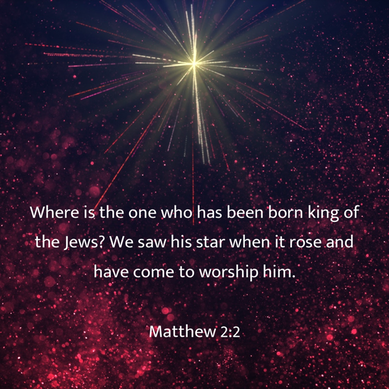
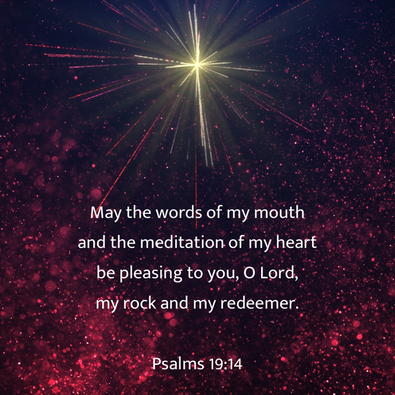
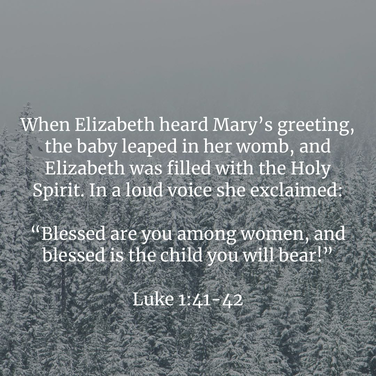
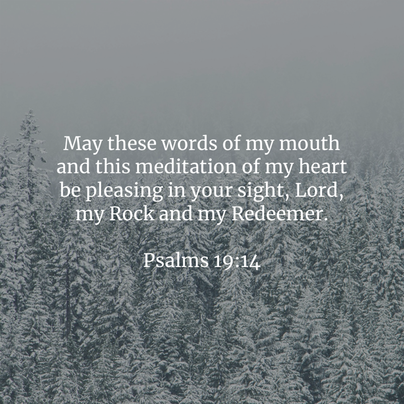
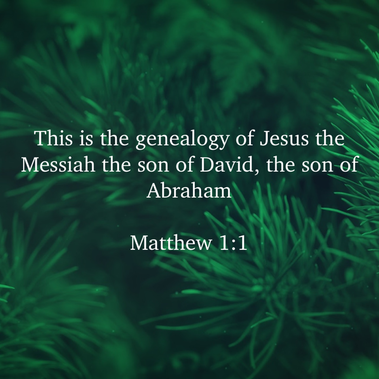
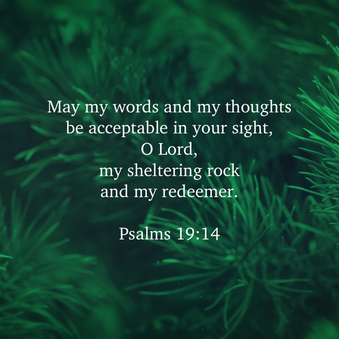
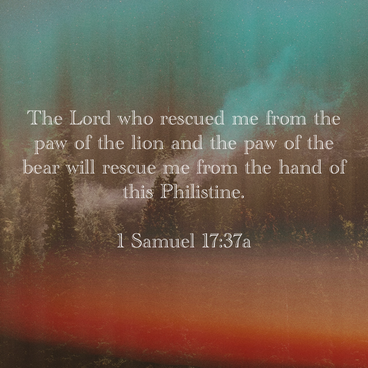
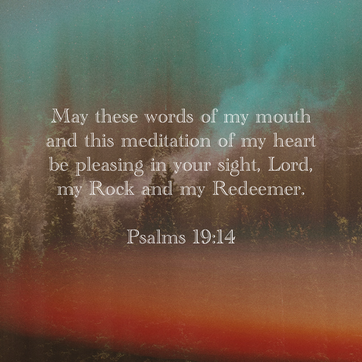

 RSS Feed
RSS Feed